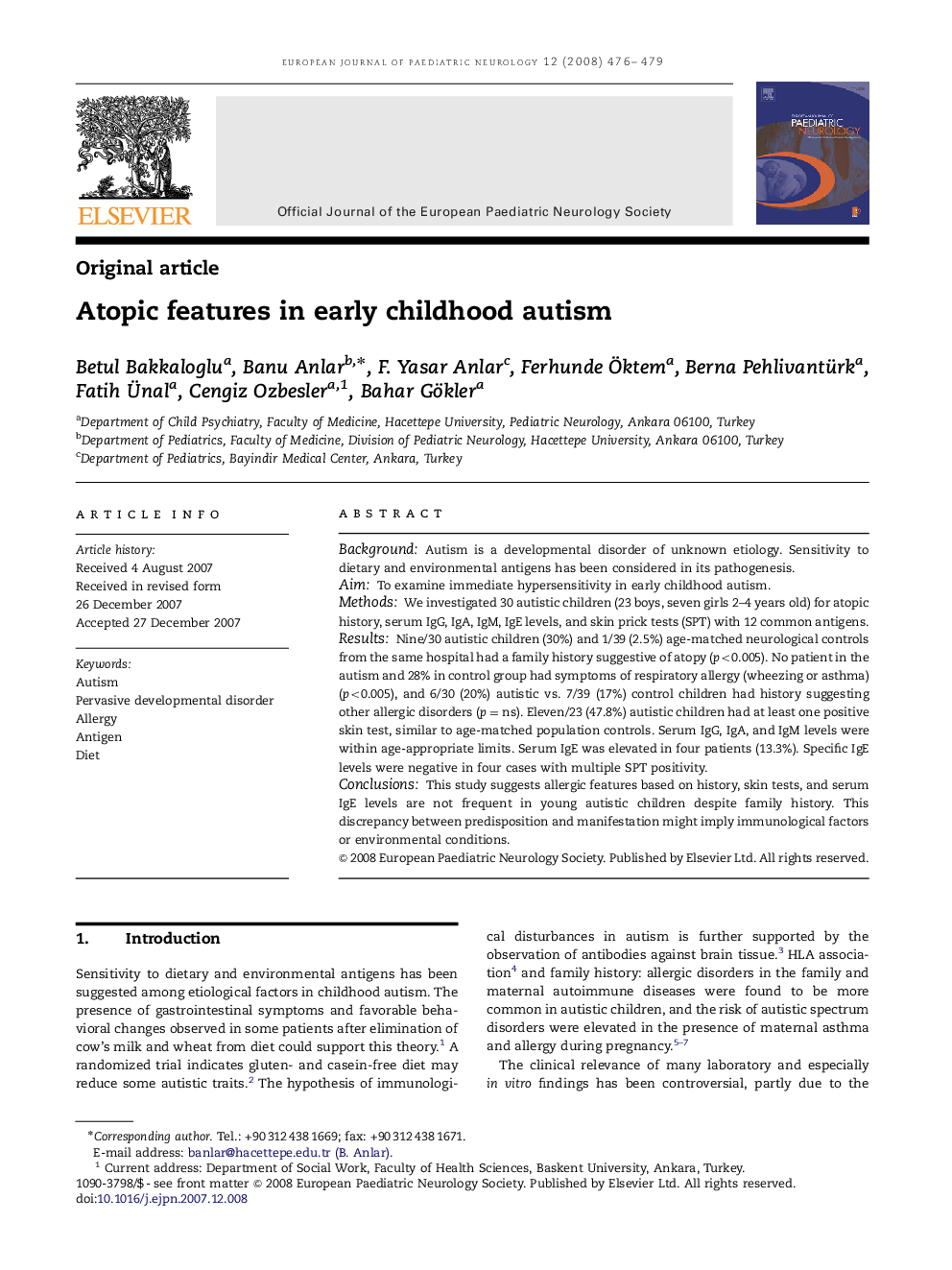| Article ID | Journal | Published Year | Pages | File Type |
|---|---|---|---|---|
| 3054726 | European Journal of Paediatric Neurology | 2008 | 4 Pages |
BackgroundAutism is a developmental disorder of unknown etiology. Sensitivity to dietary and environmental antigens has been considered in its pathogenesis.AimTo examine immediate hypersensitivity in early childhood autism.MethodsWe investigated 30 autistic children (23 boys, seven girls 2–4 years old) for atopic history, serum IgG, IgA, IgM, IgE levels, and skin prick tests (SPT) with 12 common antigens.ResultsNine/30 autistic children (30%) and 1/39 (2.5%) age-matched neurological controls from the same hospital had a family history suggestive of atopy (p<0.005). No patient in the autism and 28% in control group had symptoms of respiratory allergy (wheezing or asthma) (p<0.005), and 6/30 (20%) autistic vs. 7/39 (17%) control children had history suggesting other allergic disorders (p=ns). Eleven/23 (47.8%) autistic children had at least one positive skin test, similar to age-matched population controls. Serum IgG, IgA, and IgM levels were within age-appropriate limits. Serum IgE was elevated in four patients (13.3%). Specific IgE levels were negative in four cases with multiple SPT positivity.ConclusionsThis study suggests allergic features based on history, skin tests, and serum IgE levels are not frequent in young autistic children despite family history. This discrepancy between predisposition and manifestation might imply immunological factors or environmental conditions.
